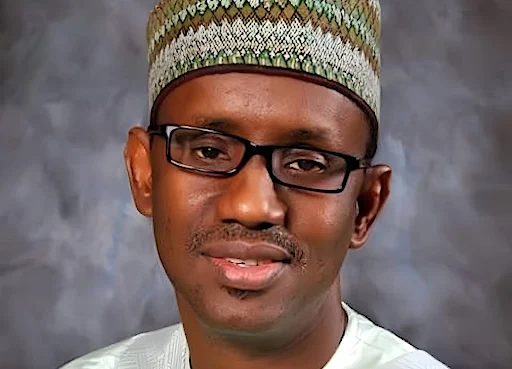Malam Nuhu Ribadu was born on 21 November 1960 in Adamawa State, Nigeria. He hails from a Fulani family in Yola, the state capital of Adamawa. He pursued his early education in his hometown before advancing to Ahmadu Bello University (ABU) in Zaria, Kaduna State, where he studied law. He later attended the Nigerian Law School and was called to the bar in 1984.
To enhance his expertise in law enforcement and governance, Ribadu attended several professional and leadership training programs, both within and outside Nigeria. He later obtained an LL.M (Master of Laws) degree from ABU Zaria.
Early Career in Law and Security
Ribadu began his career in law enforcement as a Police Prosecutor and later became a senior officer in the Nigerian Police Force (NPF). His legal expertise and dedication to duty earned him recognition, and he was eventually appointed as Deputy Commissioner of Police.
Chairmanship of the EFCC (2003–2007)
In 2003, under President Olusegun Obasanjo, Nuhu Ribadu was appointed as the first Executive Chairman of the Economic and Financial Crimes Commission (EFCC), an anti-graft agency established to combat corruption, money laundering, and financial crimes in Nigeria.
During his tenure at the EFCC, Ribadu became widely known for his bold and aggressive stance against corruption. His leadership led to the investigation and prosecution of several high-profile politicians, business figures, and public officials. Some of the notable cases included:
- Tafa Balogun, the then Inspector General of Police, who was convicted of corruption and sentenced to jail.
- Several former governors accused of mismanaging public funds, including James Ibori (Delta), Joshua Dariye (Plateau), and Diepreye Alamieyeseigha (Bayelsa).
Under Ribadu’s leadership, Nigeria witnessed a remarkable improvement in its fight against corruption. The EFCC recovered billions of naira in stolen public funds, and its activities were widely praised by international organizations, including the United Nations, World Bank, and Transparency International.
Controversies and Forced Exit from EFCC
Ribadu's tenure at the EFCC was marked by political conflicts and resistance from powerful individuals affected by his anti-corruption efforts.
- In 2007, after President Umaru Musa Yar’Adua took office, Ribadu was removed from his position at the EFCC and sent on a mandatory study leave at the National Institute for Policy and Strategic Studies (NIPSS).
- In 2008, he was demoted from the rank of Assistant Inspector General of Police (AIG) to Deputy Commissioner of Police (DCP), a move widely seen as political retaliation.
- Following threats to his life, Ribadu fled Nigeria into exile in 2009.
Exile and Return to Nigeria
During his exile, Ribadu remained active in anti-corruption advocacy and was involved in various international programs on governance and security.
- In 2011, under President Goodluck Jonathan’s administration, Ribadu was granted amnesty and allowed to return to Nigeria.
- He was later appointed Chairman of the Petroleum Revenue Task Force, tasked with investigating corruption and revenue mismanagement in Nigeria’s oil and gas sector.
- Despite his efforts, the Jonathan administration did not implement many of his recommendations.
Political Career
- In 2011, Nuhu Ribadu contested in Nigeria’s presidential election under the Action Congress of Nigeria (ACN) but lost to Goodluck Jonathan of the PDP.
- In 2014, he defected to the People’s Democratic Party (PDP) and contested for the governorship seat of Adamawa State, but he lost.
- In 2018, he returned to the All Progressives Congress (APC), the ruling party.
Later Years and Current Position
Nuhu Ribadu has remained influential in Nigeria’s political and security landscape.
- In 2023, President Bola Ahmed Tinubu appointed him as National Security Adviser (NSA), a position that oversees Nigeria’s security policies and intelligence operations.
- As NSA, Ribadu has been involved in tackling security challenges such as terrorism, banditry, and cybercrime.
Legacy and Impact
Malam Nuhu Ribadu is widely regarded as one of Nigeria’s most courageous anti-corruption fighters. His tenure at the EFCC set a precedent for accountability in public service. Despite facing opposition, his contributions to law enforcement and governance remain significant in Nigeria’s history.
He continues to advocate for transparency, good governance, and security reforms in Nigeria.





